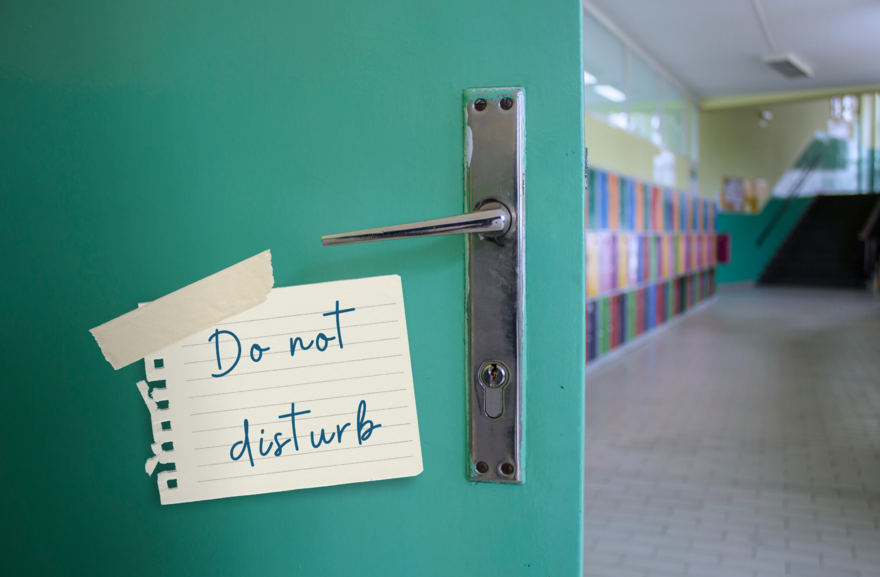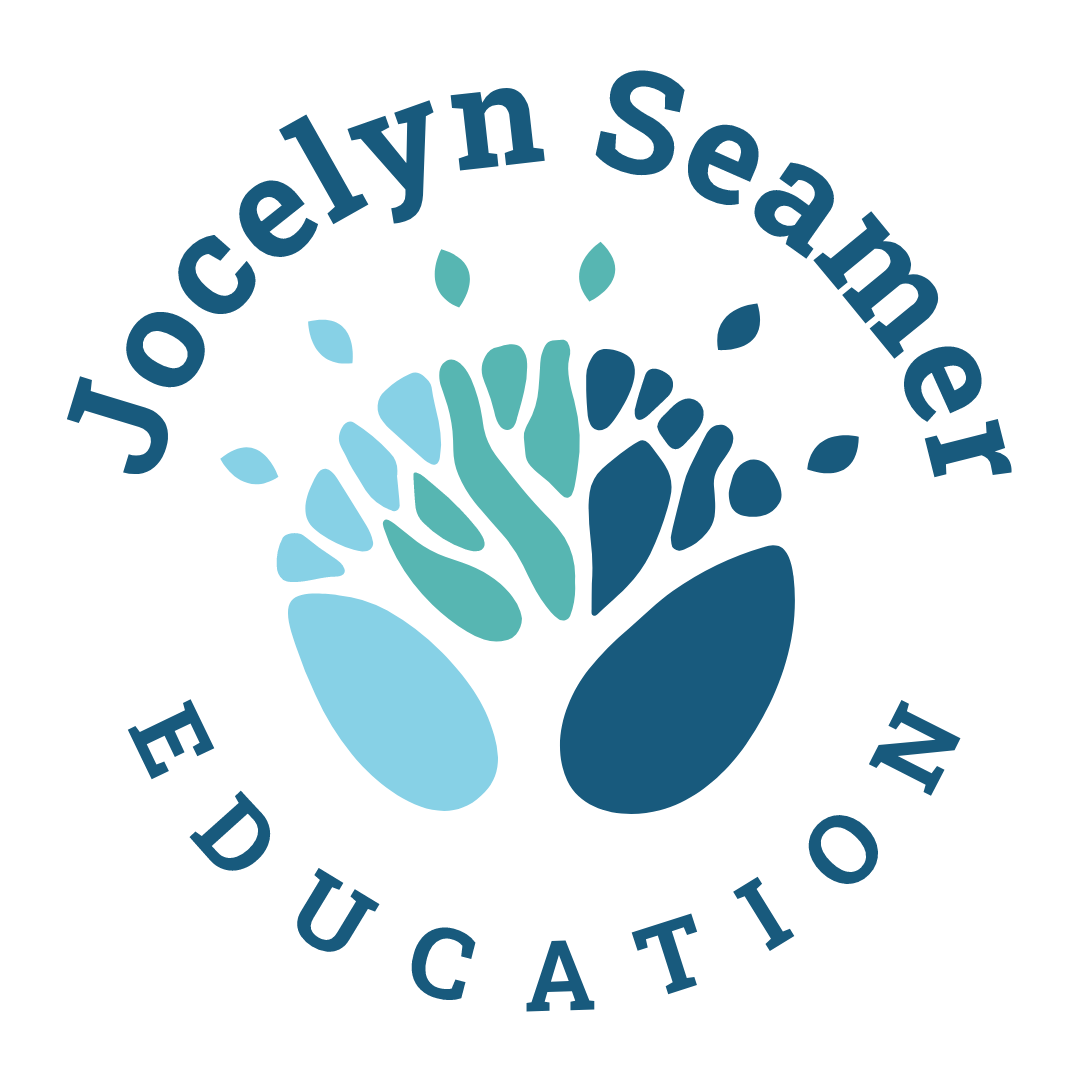S1 E22 - Change is hard, and we need everyone to do it

00:00:00
Introduction
Hi there, everyone. Welcome to this episode of the Structured Literacy Podcast, the place where we talk all things reading, writing, and structured literacy. I'm bringing this podcast to you from Tasmania, the lands of the Palawa people.
00:00:15
Today's topic - Why learning can be hard.
Learning is hard. That's no news to any of us. We teach our students the mantra; we can do hard things. We want them to be resilient in the face of obstacles, to be persistent with learning new skills, and to recognize that mistakes are a normal part of the learning process. See, being a good learner is about embracing the fact that we are going to feel vulnerable at times. There are going to be days when stuff is hard. When it comes to being a teacher who is seeking to develop practice, we need to build this open mind for learning too.
00:00:49
I just climbed a mountain, I need a rest.
When we are first teaching, we accept that there is going to be a steep learning curve. We know that we are standing at the bottom of the mountain, staring up at the summit. But when we are established in our practice, and we are standing at the top of our own mountain, it can be really hard to look at the next mountain we have to climb and voluntarily place ourselves at the bottom of it. When you've done the hard yards to climb a mountain, it's understandable that you want to take a break and enjoy the view, but after a while, this view becomes familiar and stale.
In our teaching, we can switch to cruise mode after a few years, and this is really hard to get out of. Where we've been at this teaching thing for a bit, to even think about putting ourselves into the position of feeling like we are back to being a novice takes courage. I think we create some of the difficulty in shifting practice all on our own because we expect that there will come a time when teaching is easy. It's our expectations that set us up for future stress.
00:01:51
Ken Blanchard's situational leadership model
The truth of this is that every one of us will pass through a series of stages when we're learning something new. You may have heard me talk about Ken Blanchard's situational leadership model before. This model outlines four stages of learning that we all pass through.

In the beginning, we're all bright-eyed and bushy-tailed about the thought of doing something new. After a little while, we realized that this thing is harder than we thought it was going to be or not what we expected. This is the point at which things can go awry. This is the stage where we are feeling vulnerable because we don't really know what we are doing. It's also the stage where our vulnerability leaves us most resistant to the help that we so desperately need.
When we reach this second stage in our development journey, we have a choice to make. Are we going to fight our feelings and frankly stomp our foot like a toddler? Or are we going to assume responsibility for our learning and embrace the fact that learning things is hard? At least for a little while.
00:02:49
Five steps to accountability
There are five steps to accountability, and today I'm going to apply them to the undertaking of learning a new way of teaching.
00:02:57
Step 1 - Ignore it
The first step in this framework is to simply ignore. We might attend a staff meeting where future changes are mentioned. Things start to happen in our schools, such as data collection, training, professional learning in theory, and despite all this work happening, we choose to simply ignore that a change is coming, but the day comes when we are going to be required to do something differently, and that's where we suddenly wake up.
00:03:22
Step 2- Deny that change is necessary
We feel shocked that this change is here, and we start to push back. A common response to this situation is to simply deny that any change is needed. Assertions, such as, "But I'm already doing this in my own way", are often heard along with things like, "There is no problem in our school. Why do we need to change anything?" Leaders and colleagues look at us incredulously, unable to understand why we can't see what they are seeing. After all, there is oodles of data to show that the gaps in our student learning are real. But no matter how much data we are shown, we still can't accept that there is a problem that needs solving.
There does come a point where we might accept the reality of the situation, but we're still not ready to accept any responsibility for that situation. We don't want to have to think about adjusting practice, and we are more than likely waiting for the chance to close the classroom door and do our old thing. But schools on a transformational mission don't let teachers do this. There are professional learning, community meetings, data discussions, and team planning. At some point, we have to come to the party.
00:04:33
Step 3 - Blame others
That's where we shift into blaming others. This is the third step on the path to accepting responsibility. When we are stuck blaming others, we literally do that. We blame our feelings of discord and uncertainty on the Department of Education for not being able to make up its mind about what it wants. We blame those phonics people for being a cult. We blame the parents for not reading enough to their children. We blame early career teachers for not knowing enough or accuse them of being too ambitious and sucking up to leadership. We might even seek to discredit colleagues and key stakeholders in an attempt to maintain our own position of authority because we like what we've been doing and we just can't take responsibility for the fact that we have a part to play in change.
Blaming others is a toxic thing to do. It takes our energy away from the important action that will improve our situation, and it makes everyone around us uncomfortable and unsteady. Some people get stuck here, and it's a pretty miserable way to be. Every one of us can think of someone we have encountered or encounter on a regular basis who is stuck blaming others for their own feelings. The only person who can control what happens in your head is you, and you are the only person who can, in the words of Dr Seuss, "un-slump yourself".
00:05:58
Step 4 - Assuming responsibility
The answer is to take responsibility for our own reactions and the part that we have to play in the situation at hand, and that's the fourth step, assuming responsibility. Assuming responsibility isn't about guilt or blame or pointing fingers in a negative way at ourselves. That only serves to impede our capacity to make progress. Assuming responsibility is about recognizing that while not everything is in our control, many things are. It's about deciding to be in charge of our thoughts, feelings, and actions and controlling the controllables in our world.
When we assume responsibility for our own learning, we are able to connect with others in a meaningful way. We can join together as a team and say, we've got this. We are in charge of what happens in our school. We are accountable for the results of our students. Only we can make sure that every student in our care is learning.
00:06:57
Step 5 - Find a solution
It's that sense of accountability that leads us to find solutions, which is the last step in the process. Once we reach this point, we can find ourselves incredibly hopeful about the changes that we can make and it's entirely possible that we can feel scared and vulnerable all at once because when we assume responsibility for finding solutions, we, all of a sudden, have to have the knowledge and skills to know what to do, and for every one of us, there are going to be things to learn.
That brings me back to Ken Blanchard's situational leadership model. The second stage of this model sees us in the role of disillusioned learners. We think we know, but we don't really. We encounter obstacles caused by our lack of knowledge and skill, and it's entirely understandable that we aren't thrilled about that.
00:07:48
The importance of support and direction.
How long we spend in this second, uncomfortable, icky phase depends on a few things. It depends on how much support we have on the days when things are rough, and it depends on how much direction we receive to help us learn the necessary skills and knowledge to get the job done.
00:08:05
We can do our own learning too.
But here's the thing, we aren't children. We are professionals who can take responsibility and find solutions for learning. Yes, our school leaders can and should help us with this, but we can do our own learning too. It's actually a requirement of our role. It's also a requirement of being a grown-up person that we assume responsibility and find solutions for our development In general.
We don't have a dummy spit and go to below-the-line behaviours to deal with our own discomfort. We can choose how we react. If we choose a professional path in this, our time in the disillusioned learner phase will be short-lived. If we don't, it won't be, and we'll be there for a long, long time.
00:08:48
What's brought on this change of tone in the podcast?
You might be wondering what's brought on this change of tone in the podcast. Our messaging is usually compassionate and understanding. Believe it or not, that's what this podcast is. While the grownups in the room are waiting for learning to be easy, way too many students have arrived in the middle of the year with no appreciable growth in their reading and writing skills. While a minority of teachers are digging their heels in and refusing to get on board with the whole school approach, kids are sitting in classrooms feeling like failures.
00:09:19
In Conclusion
Yes, adjusting to the new normal can be tricky. Yes, we deserve to be supported with understanding and appropriate professional learning and resourcing by our schools. Yes, our views and feelings need to be respected and taken into consideration, and all of that is perfectly reasonable. But what is not reasonable is that individuals can hold up a whole school's efforts because learning new things is hard.
Learning new things is hard, but guess what? We can do hard things. We are professionals who all want to make a difference to student outcomes. Let's draw a line in the sand and say "No more" to reading failure. Let's take responsibility for managing our thoughts and responses to change. If we can do that, so many wonderful things are possible. If you think that someone you know could benefit from the Structured Literacy podcast, please share it with them.
If you've enjoyed our first few months of episodes, please rate and share with others so that we can help more teachers and schools get great results for students.
Thanks for listening. Bye.
References
Blanchard, K., Zigarmi, D., & Zigarmi, P. (1994) Leadership & The One Minute Manager [Thorsons Classics edition], Harper Collins.
Looking for the support to help your team take the next step in their structured literacy journey? Consider joining the Evergreen Teacher membership. Click here to learn more.

 Jocelyn Seamer Education
Jocelyn Seamer Education
0 comments
Leave a comment